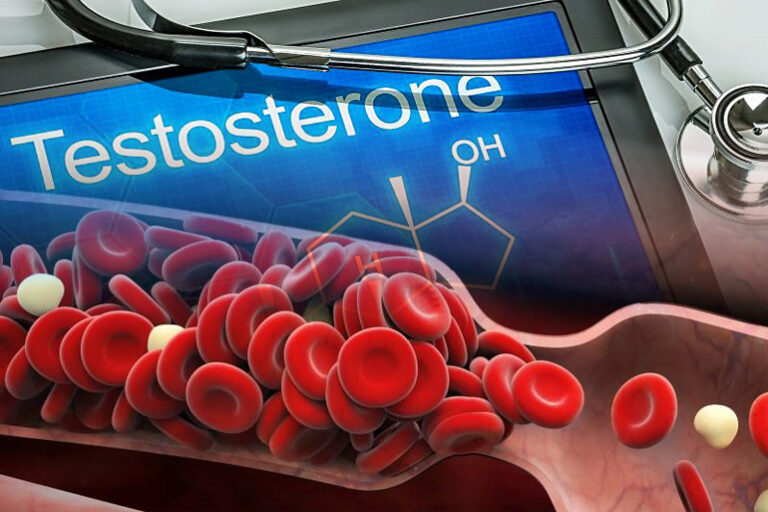There are a variety of causes of low testosterone, including aging, infertility, and certain medications. In many cases, treatment options involve diet and lifestyle changes to increase testosterone levels. If you are concerned that your level is too low, your doctor may recommend blood tests. Low testosterone may also lead to a variety of other symptoms, such as difficulty concentrating and weight gain.
Testosterone is naturally produced by the testicles and is crucial to maintaining body hair, bone density, sex drive, and sperm production. However, while testosterone is necessary to a healthy man, it does not define what a real man is. For that reason, it is crucial to monitor testosterone levels regularly.
When low testosterone levels result in symptoms, your doctor may recommend testosterone replacement therapy. This treatment can help boost your sex drive, improve mood, and prevent erectile dysfunction. There are several types of testosterone replacement therapy, including injections and patches. Injections are the most common and least expensive form, but they are uncomfortable and may need to be repeated every two or four weeks. Nasal patches can be applied twice a day.
Testosterone is naturally produced in the testicles and is present in the blood and testicles, but low testosterone can cause unwanted symptoms, such as erectile dysfunction and reduced sex drive. Testosterone also promotes red blood cell production, which keeps your bones strong, helps you think, and enhances your mood. Low levels can affect all of these areas of your life.
Testosterone is important for cellular functioning, and low levels can affect your energy levels, your bone health, and your sex drive. A person with low testosterone levels may also experience erectile dysfunction, a loss in bone mass, and reduced bone density. However, symptoms of low testosterone may be mistaken for other health conditions.
Some causes of low testosterone include cancer treatment and testicular trauma. Cancer treatments can interfere with sperm production and lead to a decreased testosterone level. HIV/AIDS is also another possible cause. The virus interferes with the pituitary and hypothalamus, affecting the hormone levels in the testes. If you suspect low testosterone, you should visit your doctor. A leading testosterone clinic in Cleveland for TRT can test your levels twice to rule out any other causes.
Since males typically have low testosterone levels, doctors can treat them by boosting testosterone levels with testosterone supplements or other therapies. Testosterone replacement therapy can be effective for some men, but it is important to understand the risks and side effects. A doctor should be able to diagnose men with low testosterone levels using a rational approach.
Low Testosterone Levels (Low-T) can be caused by a number of different things. Some men are genetically predisposed to have lower testosterone levels than others, and others have conditions that affect their testicles or ovaries. As we age, our testosterone levels may also decrease. Because of this, the FDA recommends against using testosterone replacement therapy for low levels caused by aging. Low-T is not limited to men, as women need testosterone for healthy functioning. The American Urological Association recommends that a man’s testosterone level be 300 ng/dL or higher.
Low levels of testosterone can lead to a variety of symptoms, including erectile dysfunction and weight gain. While low levels of testosterone are not the cause of infertility, they can lead to reduced sperm production. In addition, low levels of testosterone can lead to reduced sex drive and reduced libido. In addition to these symptoms, men with low testosterone may also experience erectile dysfunction, which means that they have a hard time reaching climax.
In addition to mood changes, low testosterone levels can affect the ability to concentrate and focus, and cause trouble sleeping. If you think your levels are too low, you should see a doctor. If you suspect that you have low testosterone, your primary care physician may recommend a test to determine what the cause of your low testosterone levels is. There are also a number of medical conditions that can reduce testosterone levels, including radiation therapy, chemotherapy, and steroid medicine. Your primary care physician can also refer you to a specialist who can determine what’s causing your low levels.
A doctor may recommend testosterone replacement therapy in some cases, but the exact amount you need depends on the severity of your symptoms. Testosterone levels usually vary from 300 to 1,000 nanograms per deciliter, or ng/dL. The best way to diagnose a low testosterone problem is to take a blood test, and consult your doctor about a hormone replacement therapy. It’s important to know that testosterone replacement therapy is a long-term treatment, so you should be ready to undergo it if you’re diagnosed with low testosterone.
Medications that increase testosterone levels are a great way to treat low T. They may improve sexual desire, prevent bone loss, and increase muscle mass. In addition, men who take testosterone also report feeling better. Testosterone pills can also be helpful for men who have problems erections. However, this medication is not for everyone, and some men may experience side effects such as skin rash or enlarged prostate.
Men who suffer from low testosterone levels may want to consider a healthy lifestyle in addition to medical treatment. Making healthy lifestyle changes can improve testosterone levels and keep men healthy. Exercise can also help men with low levels maintain their strength, energy, and lean muscle mass. Additionally, regular physical activity can improve mood and promote better sleep. If these lifestyle changes don’t work, men may want to consider taking a natural testosterone supplement. But don’t forget to check with your doctor before taking any supplements.


